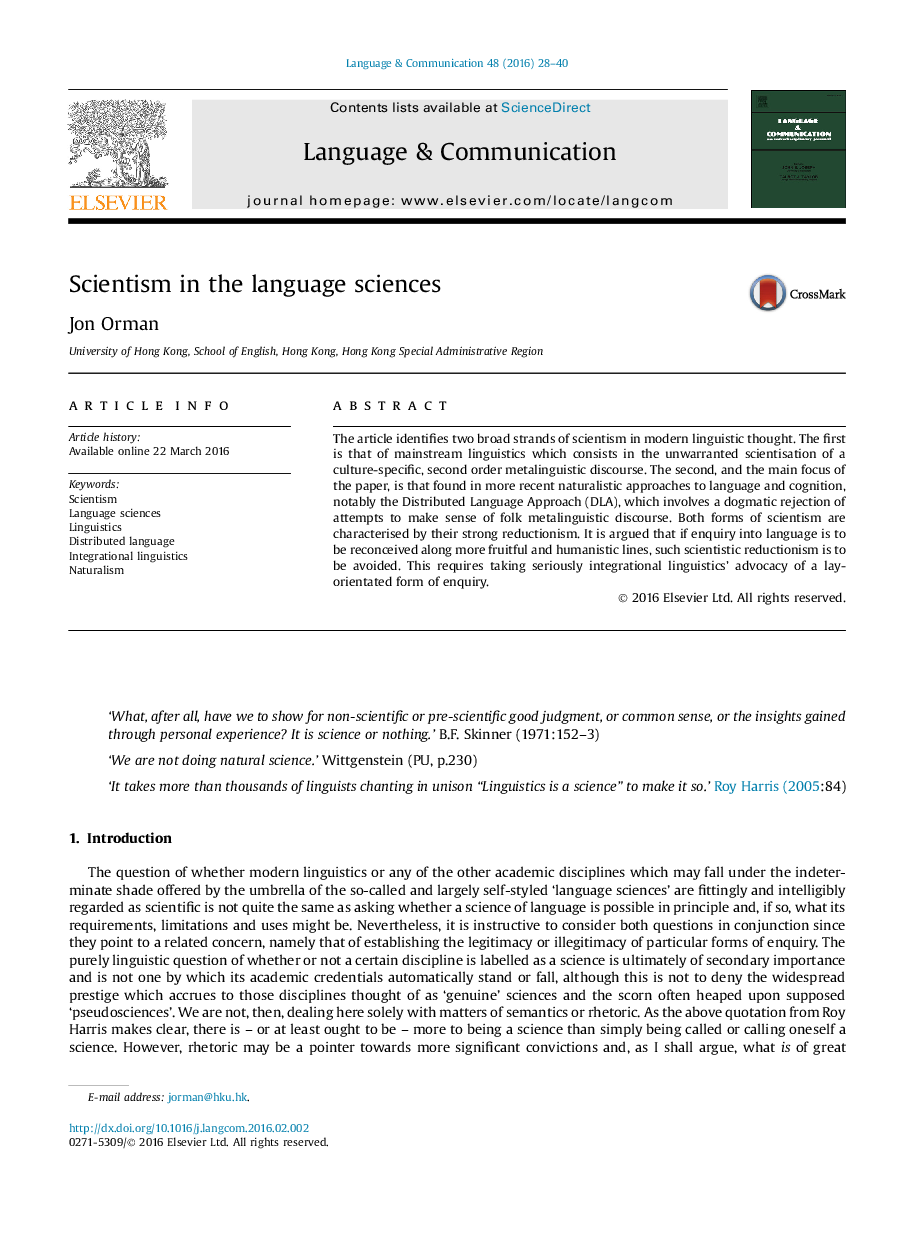| کد مقاله | کد نشریه | سال انتشار | مقاله انگلیسی | نسخه تمام متن |
|---|---|---|---|---|
| 934809 | 1474917 | 2016 | 13 صفحه PDF | دانلود رایگان |
• The desire to have a science of language has plagued modern linguistic thought.
• Scientism in linguistics has led to reductionism and metaphysics.
• Contemporary naturalistic approaches to language also fall victim to a form of scientism.
• Scientism can be avoided by taking seriously the function and character of lay metalinguistic discourse.
The article identifies two broad strands of scientism in modern linguistic thought. The first is that of mainstream linguistics which consists in the unwarranted scientisation of a culture-specific, second order metalinguistic discourse. The second, and the main focus of the paper, is that found in more recent naturalistic approaches to language and cognition, notably the Distributed Language Approach (DLA), which involves a dogmatic rejection of attempts to make sense of folk metalinguistic discourse. Both forms of scientism are characterised by their strong reductionism. It is argued that if enquiry into language is to be reconceived along more fruitful and humanistic lines, such scientistic reductionism is to be avoided. This requires taking seriously integrational linguistics' advocacy of a lay-orientated form of enquiry.
Journal: Language & Communication - Volume 48, May 2016, Pages 28–40
